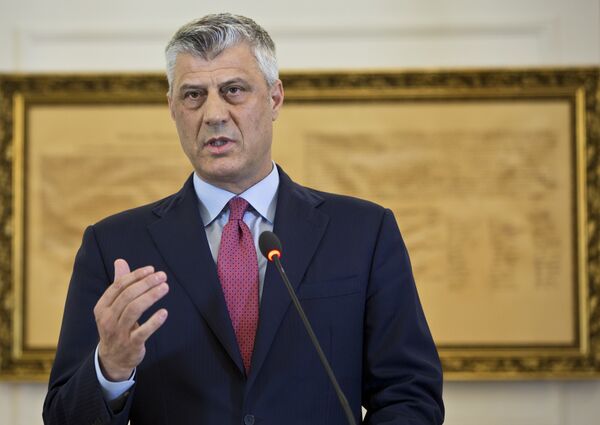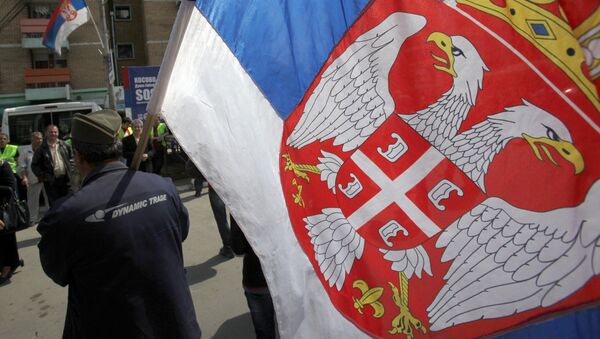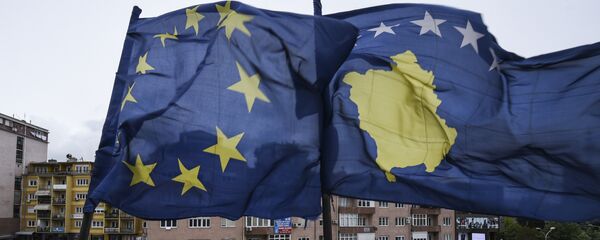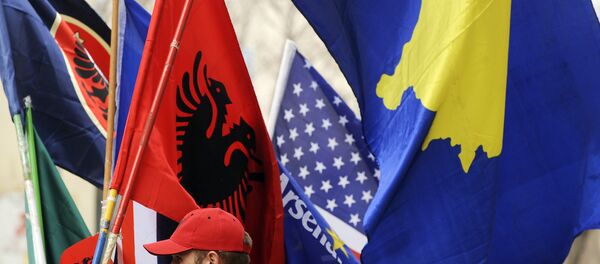Veca wrote four books about the fate of Kosovo's Serbs after the 1999 NATO bombings of former Yugoslavia, an event that was followed by Albanian extremists' clampdown on the Serbian minority in Kosovo.
One of her books dealt with the illicit traffic in human organs in Kosovo. According to last year's Council of Europe Parliamentary Assembly Report, members of the Kosovo Liberation Army (KLA) removed organs from prisoners, many of them ethnic Serbs, held in Albania.

Although current Kosovo President and former KLA leader Hashim Thaci has repeatedly dismissed the allegations as "baseless," many believe that the human organ trafficking was conducted under his auspices.
"More than 2,000 Serbs have disappeared right before the eyes of the so-called international community, and no one cares about this. So I wanted to tell the world what I heard from family members of those who were abducted by the KLA, and who were tortured, killed and who had organs cut out," Veca said.
When asked why the reports about the possible role of former KLA leaders in the Kosovo organ trade were put on the back burner, Veca said that "no one was interested in turning it into accusatory processes."
"KLA members became respected politicians clad in suits and ties on the international scene, and nobody wanted to destroy this illusion by trying to get to the truth," she added.
She also remained downbeat about the role of a new special court which is due to deal with the alleged crimes of former KLA leaders. According to her, a scenario where any high-ranking Kosovo politicians face trial is very unlikely.
"I do not think that there will be trials related to crimes against the Serbian population [in Kosovo], and no highly placed Kosovo politicians will be affected. The trials against KLA criminals would have meant a failure of the alleged 'truth' about Kosovo that the mainstream media and political structures have been promoting for the past twenty years," Veca pointed out.
When asked whether any European state could reconsider the decision on Kosovo's independence, she said that first of all, "we need to look at what will happen in Europe after Brexit, and will happen to Russian influence in Europe and US foreign policy" in the future.
She described the current situation in Kosovo as very complicated and hopeless, something that Veca said "is felt by Kosovo Serbs, Albanians and other peoples."
The Kosovo War between the Kosovo Liberation Army and Yugoslavia was fought in 1999, when NATO, led by the United States, was engaged in a 78-day military campaign against Yugoslavia over the alleged repression of Albanians in Kosovo.
While NATO was bombing Serbia and Montenegro, then part of Yugoslavia, between March 24, 1999 and June 10, 1999, the terrorist Kosovo Liberation Army was engaged in an ethnic cleansing campaign against ethnic Serbians residing in the region.
Additionally, according to a 2009 report published by the International Center for Transitional Justice, 155 Serbian Orthodox churches and monasteries were destroyed by Kosovo Albanian extremists in 1999 and in the following decade.
Kosovo unilaterally proclaimed independence in 2008 and is recognized by over 100 UN member states. Serbia, as well as Russia, China, Israel, Iran, Spain, Greece and some other countries do not recognize Kosovo's independence.
Never miss a story again — sign up to our Telegram channel and we'll keep you up to speed!




